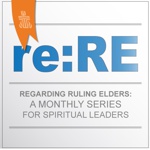Now you are the body of Christ and individually members of it. (I Corinthians 12:27)
In many ways the church looks pretty much like most organizations. However, in one crucial respect we are essentially different: the church is the body of Christ. The church exists because Jesus died and rose from death for us. The 14th century writer Julian of Norwich captures something of this amazing relationship in talking about Jesus as our spiritual mother, giving birth to us on the cross. This is a bond of intimacy, obedience, and love. Through his death and resurrection we are collectively a new creation: the body of Christ. In this way, the church is unique among organizations.
It is important to remember these truths because the church’s identity as Christ’s body is not always easy to see. Sin and human failings cloud the divine nature of the church. The mundane details of church life and leadership can numb us to the wonder and beauty of being the body of Christ in this world. In the press of getting things done, we may slip into autopilot and begin to act as though the church is just another organization.
Helping the church remember its identity is at the heart of the session’s calling. We do this not only by what we do but by how we do it. First, we do our work while remembering that we do not own the church. The Book of Order reminds us that “God has put all things under the Lordship of Jesus Christ and has made Christ Head of the Church, which is his body. The Church’s life and mission are a joyful participation in Christ’s ongoing life and work” (F-1.0201). No matter how much we love our church, it is not really ours. The church belongs to Christ. In making decisions, we must always be seeking God’s will, not our own.
We also reflect the unique identity of the church by the way we act toward each other as we do our work. John’s gospel tells us that during the last supper with his disciples, Jesus rose from the table and began to wash and dry his disciples’ feet. In that day, household slaves usually did this rather distasteful task. When he finished, Jesus said to them, “So if I, your Lord and Teacher, have washed your feet, you also ought to wash one another’s feet. For I have set you an example, that you also should do as I have done to you” (Jn.13:14–15). Paul tells the Philippians what this looks like: “Do nothing from selfish ambition or conceit, but in humility regard others as better than yourselves. Let each of you look not to your own interests, but to the interests of others. Let the same mind be in you that was in Christ Jesus” (Phil. 2:3–5). Clearly, Jesus expected the quality of relationships in his body to be very different from the way people generally treat each other in the world.
Clarence Jordan, founder of the Koinonia Farm, is said to have remarked that the church should be a demonstration plot for the Kingdom of Heaven. A demonstration plot is a piece of ground planted with a particular kind of seed to show farmers what they would get if they planted it in their fields. Jordan meant that people should be able to look at our common life to see what God’s reign looks like. This is quite a responsibility, but it also includes a promise. When we live into the church’s unique identity as the body of Christ, everyone can experience a taste of God’s will being done on earth as it is in heaven.
- When do you experience the church as the body of Christ?
- When does the church most feel to you like just another human organization?
- Reflect on the statement: Jesus gave birth to the church on the cross. What does this image imply about what we can expect from “Jesus our mother”?
- If someone were to do a close study of your congregation, what would they see that would help them understand God’s will for the world?
- What changes in the way your session operates would help make your congregation a more effective demonstration plot for God’s reign on earth?
Joan S. Gray has served as teaching elder in twelve congregations. She is the co-author of Presbyterian Polity for Church Leaders, and the author of Spiritual Leadership for Church Officers and Sailboat Church, all published by Westminster/John Knox Press. Joan concluded a two-year term as Moderator of the 217th General Assembly (2006) of the PC(USA) and lives in midtown Atlanta.
For more about the information provided here, please contact Martha Miller at martha.miller@pcusa.org and browse the Ruling Elders website.

